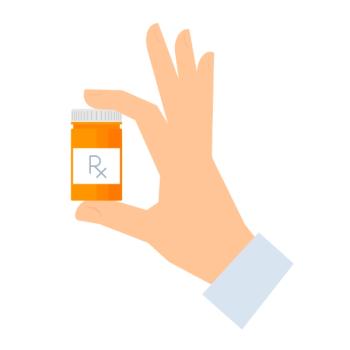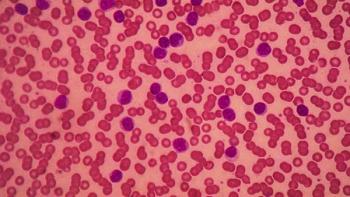
The combination of Lenvima and Keytruda was associated with improvements in survival and response rates over Sutent alone in various subgroups of patients with advanced renal cell carcinoma.

Colleen Moretti, Assistant Editor for CURE®, joined MJH Life Sciences in November 2020. Colleen is a graduate of Monmouth University, where she studied communication with a focus in journalism and public relations. In her free time, she enjoys learning to cook new meals, spending time with her adopted beagle, Molly, or sitting on the beach with a good book. Email her at [email protected]

The combination of Lenvima and Keytruda was associated with improvements in survival and response rates over Sutent alone in various subgroups of patients with advanced renal cell carcinoma.

The combination of Gleevec and Xpovio demonstrated some promising results in a small group of patients with a rare form of advanced gastrointestinal cancer whose disease had failed to respond to prior first-line treatment with Gleevec.

At a median follow-up of almost two years, 88.5% of patients remained on study treatment.

These findings, according to one of the study’s authors, demonstrate that Yescarta addresses an important unmet medical need for patients with relapsed/refractory follicular lymphoma.

Treatment with aumolertinib was associated with prolonged survival in patients with advanced non-small cell lung cancer.

Previously treated patients with non-small cell lung cancer tended to have better responses with Retevmo than they did with prior treatments.

Findings demonstrated that Gavreto could clinically benefit those with RET fusion-positive non-small cell lung cancer, including those who are treatment naïve.

Combination therapy with Aliqopa and rituximab improved progression-free survival in patients with relapsed indolent non-Hodgkin lymphoma.

Patients with relapsed/refractory acute lymphoblastic leukemia may have prolonged survival with Blincyto, especially among those who undergo hematopoietic stem cell transplantation.

Sociodemographic factors such as race, marital status, health status and age all played a role in understanding which patients and survivors are receiving informal care from a family member or friend during and after treatment.

Evidence from a phase 3 trial does not support the addition of Tecentriq to a specific chemotherapy regimen with Avastin for patients with newly diagnosed stage 3 or 4 ovarian cancer.

Adolescent and young adult cancer survivors were more likely to misuse substances including drugs and alcohol compared with their peers without a history of cancer, which may be a result of overprescribing from doctors or inefficient pain management.

Some of the most popular YouTube videos about bladder cancer are of poor quality, spread misinformation and have commercial bias.

Vulnerable older patients with advanced ovarian cancer do not respond well to carboplatin treatment alone compared to a combination with paclitaxel.

Factors such as race, smoking, longer survival time and treatment may affect the voice and speech production of survivors of oropharyngeal cancer.

Factors such as red meat intake, alcohol consumption, low aspirin use and education level could contribute to a greater risk of an early-onset colorectal cancer diagnosis.

Consuming even one sugar-sweetened drink per day such as soda, fruit-flavored drinks, energy drinks, punches and sports drinks after a breast cancer diagnosis could increase the risk of mortality.

Participants who ate 18 grams of mushrooms a day had a 45% lower risk of developing cancer compared to those who do not eat them.

Twenty percent of patients with resectable hepatocellular carcinoma had a significant amount of cell death when receiving Libtayo before surgical intervention.

There is a difference between patient and oncologists regarding prognosis, and patients are lacking understanding of prognosis and interventions needed to help them make more informed treatment choices.

Interim results from a phase 2 study demonstrated that patients inoperable or advanced intrahepatic cholangiocarcoma and a FGFR2 gene mutation had a disease control rate of 79% when treated with derazantinib.

Patients with melanoma treated with Keytruda had improved recurrence-free survival without an effect on their quality of life.

Compared to a hypomethylating agent alone, combining the agent with Venclexta improved complete remission rates in patients with blast-phase myeloproliferative neoplasm.

Virtual visits during the COVID-19 pandemic improved satisfaction and convenience, as well as reduced stress and anxiety in veterans who have survived cancer.

Women who receive a breast cancer diagnosis were more likely to develop unhealthy behaviors one and two years after diagnosis, even if they were considered healthy at time of diagnosis.

Treatment with Xpovio, Velcade and dexamethasone is effective, safe and tolerable for patients with multiple myeloma, specifically those who are at least 65 years and frail.

Imbruvica combined with ublituximab improved overall response rate and progression-free survival for relapsed/refractory high-risk chronic lymphocytic leukemia with minimal residual disease negativity.

Final analysis of a phase 3 study demonstrates a tolerable toxicity profile for Gazvya in combination with chemotherapy for patients with ether first-line or relapsed/refractory chronic lymphocytic leukemia.

Keytruda demonstrated clinical benefit for patients with recurrent and metastatic disease, according to an expert.

Patients with acute myeloid leukemia experience post-traumatic stress disorder symptoms including intrusion, avoidance and hypervigilance one month after diagnosis.